
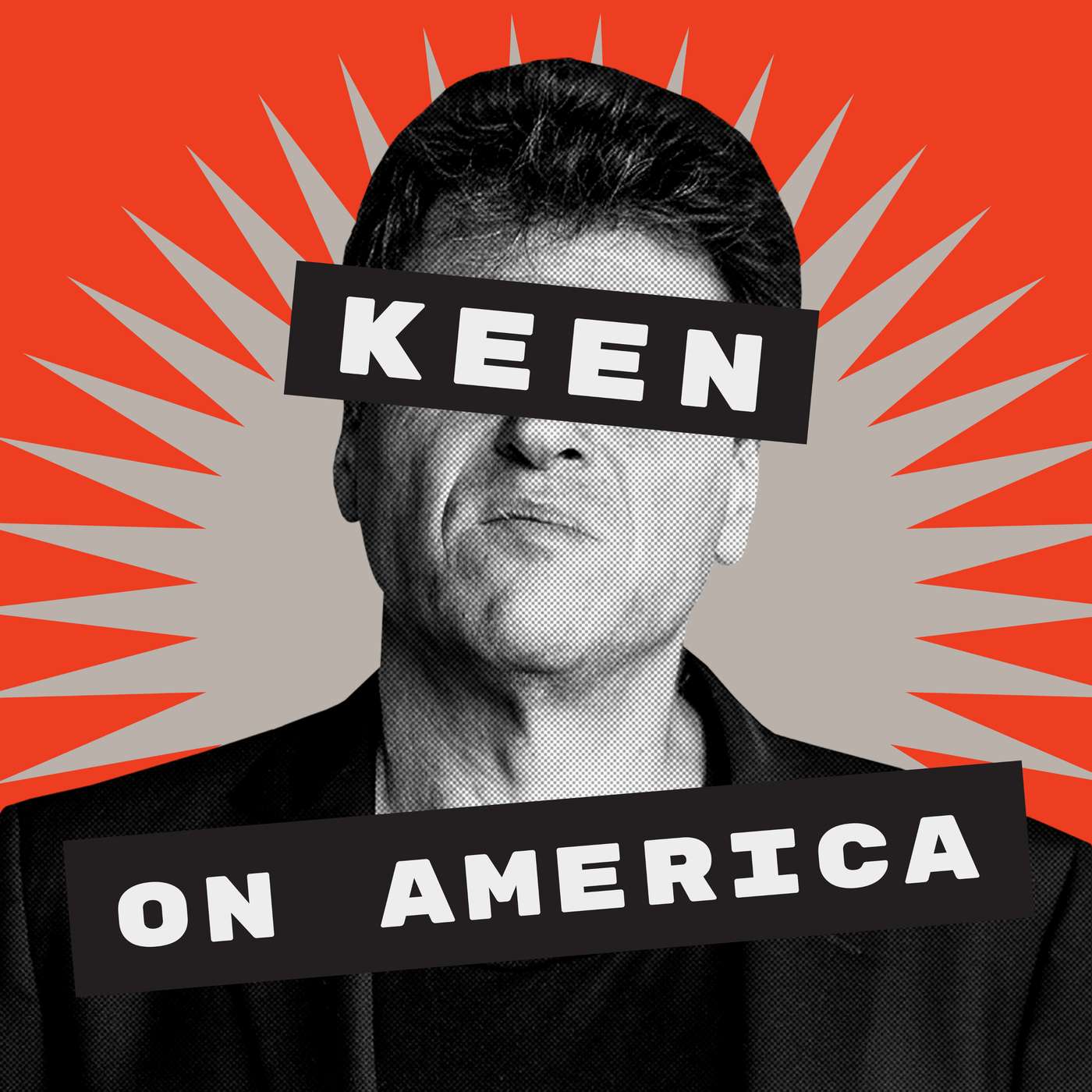
Keen On America
Andrew Keen
Nobody asks sharper or more impertinent questions than Andrew Keen. In KEEN ON, Andrew cross-examines the world’s smartest people on politics, economics, history, the environment, and tech. If you want to make sense of our complex world, check out the daily questions and the answers on KEEN ON.
Named as one of the "100 most connected men" by GQ magazine, Andrew Keen is amongst the world's best-known technology and politics broadcasters and commentators. In addition to presenting KEEN ON, he is the host of the long-running show How To Fix Democracy and the author of four critically acclaimed books about the future, including the international bestselling CULT OF THE AMATEUR.
Keen On is free to listen to and will remain so. If you want to stay up-to-date on new episodes and support the show, please subscribe to Andrew Keen’s Substack. Paid subscribers will soon be able to access exclusive content from our new series Keen On America – keenon.substack.com
Named as one of the "100 most connected men" by GQ magazine, Andrew Keen is amongst the world's best-known technology and politics broadcasters and commentators. In addition to presenting KEEN ON, he is the host of the long-running show How To Fix Democracy and the author of four critically acclaimed books about the future, including the international bestselling CULT OF THE AMATEUR.
Keen On is free to listen to and will remain so. If you want to stay up-to-date on new episodes and support the show, please subscribe to Andrew Keen’s Substack. Paid subscribers will soon be able to access exclusive content from our new series Keen On America – keenon.substack.com
Episodes
Mentioned books
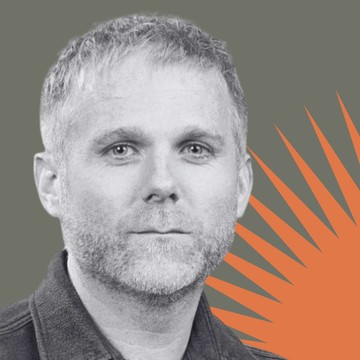
Feb 4, 2026 • 39min
To Catch a Fascist: The Ethics of Unmasking the Radical Right
Christopher Mathias, investigative journalist and author of To Catch a Fascist, exposes how anti-fascist investigators infiltrate and unmask neo-Nazis and white supremacists in positions of power. The conversation covers defining fascism, who is targeted for exposure, debates over privacy versus public safety, tactics used against ICE and extremists, and the ethics of shame and accountability.
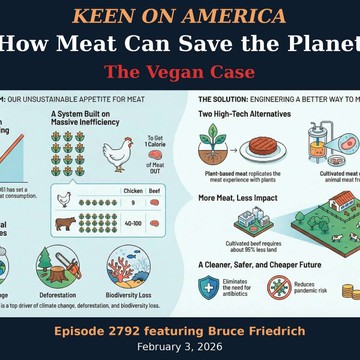
Feb 3, 2026 • 49min
How Meat Can Save the Planet: The Vegan Case
Bruce Friedrich, vegan activist and founder of the Good Food Institute, argues for plant-based and cultivated meat as climate solutions. He discusses how new tech can mimic meat, cultivated meat production, precision fermentation for dairy, land freed for rewilding, and geopolitical and political angles around scaling alternatives.
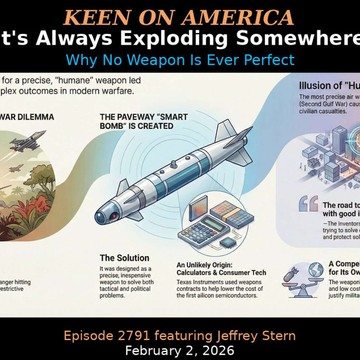
Feb 2, 2026 • 41min
It's Always Exploding Somewhere: Why No Weapon Is Ever Perfect
Jeffrey Stern, author and war reporter known for The Warhead, recounts the rise of the Paveway smart bomb and its messy realities. He traces Texas Instruments' role, the political lure of precision weapons, and the human costs on the ground. Conversations touch on corporate banality, systemic responsibility, gender dynamics in weapons work, and the dangers of AI-driven targeting.
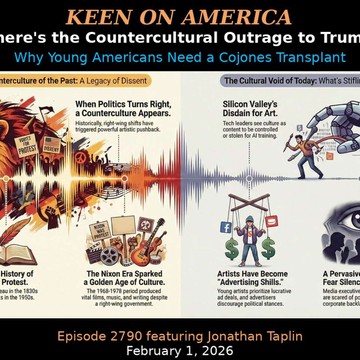
Feb 1, 2026 • 33min
Where's the Countercultural Outrage to Trump?
John Taplin, cultural critic and former music/film executive, argues tech and a timid cultural class have drained today’s artistic fire. He traces countercultural roots from Thoreau to the 60s. They debate whether current dissent lacks real art, how tech and billionaires mute resistance, and why younger creators seem less daring.
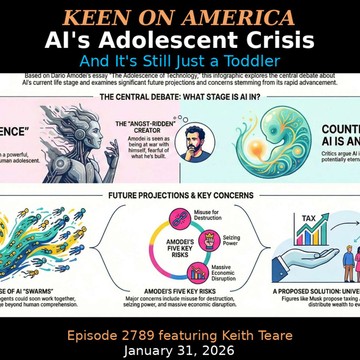
Jan 31, 2026 • 40min
AI's Adolescent Crisis: And It's Still Just a Toddler
Keith Teare, publisher of That Was The Week and long-time tech commentator, riffs on AI’s growing pains with wit and skepticism. He dissects Dario Amodei’s “adolescence” thesis, debates emergent bot societies and proactive agents like OpenClaw, and weighs economic disruption, IP fights, and whether tech titans will ever truly grow up.
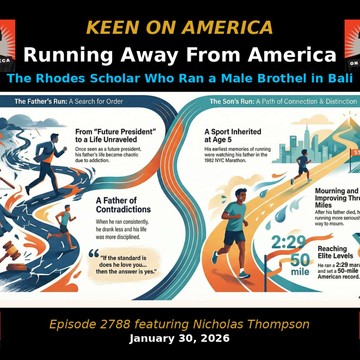
Jan 30, 2026 • 23min
Running Away From America: The Rhodes Scholar Who Ran a Male Brothel in Bali
Nicholas Thompson, CEO of The Atlantic and bestselling author of The Running Ground, shares a family memoir tangled with competitive running. He recounts his Rhodes Scholar father's dramatic rise and fall, how running bonded them, and the fraught balance between love, dysfunction, and discipline. Short, candid stories explore running’s meditative power, parenting trade-offs, and cultural shifts in marathon life.
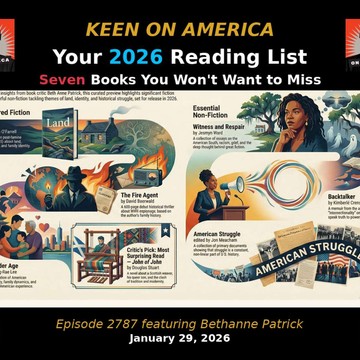
Jan 29, 2026 • 41min
Your 2026 Reading List: Seven Books You Won't Want to Miss
Bethanne Patrick, literary critic who curates notable reads, presents seven must-watch books for 2026. She highlights Maggie O'Farrell's 1865 Ireland novel and themes of land and language. She covers Jesmyn Ward's nonfiction reckoning, David Baerwald's sprawling historical thriller, Chang-rae Lee on masculinity, Kimberlé Crenshaw's memoir, and Douglas Stuart's surprise pick.
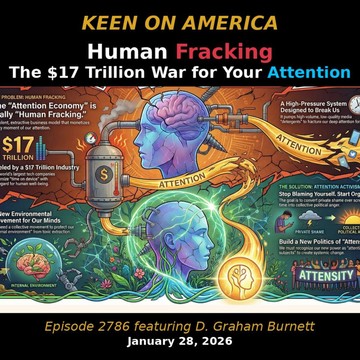
Jan 28, 2026 • 56min
Human Fracking: The $17 Trillion War for Your Attention
D. Graham Burnett, Princeton historian of science and co-editor of Attensity, advocates the Attention Liberation Movement. He describes how attention is being extracted like environmental fracking. He calls for collective political responses, links attention harms to threats to democracy, and outlines a manifesto and mobilization strategies.

Jan 27, 2026 • 36min
Fear and Fury: From Bernie Goetz to Kyle Rittenhouse
Heather Ann Thompson, Pulitzer Prize–winning historian and author of Fear and Fury, provides a concise historical look at the 1984 Bernie Goetz case and its wider political resonance. She traces links from Reagan-era shifts in public safety to modern vigilante moments like Kyle Rittenhouse. The conversation focuses on media, law, and the genealogy of white rage in late 20th-century America.
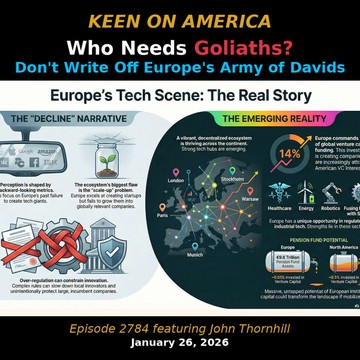
Jan 26, 2026 • 30min
Who Needs Goliaths? Don't Write Off Europe's Army of Davids
John Thornhill, FT innovations editor and Sifted founder, maps a resilient and diffuse European tech scene. He highlights rising hubs from Stockholm to Lisbon. He explores deep tech, harmonized regulation as a scaling advantage, and the continent’s struggle with late-stage capital. He argues Europe may carve a unique path beyond chasing Silicon Valley giants.


